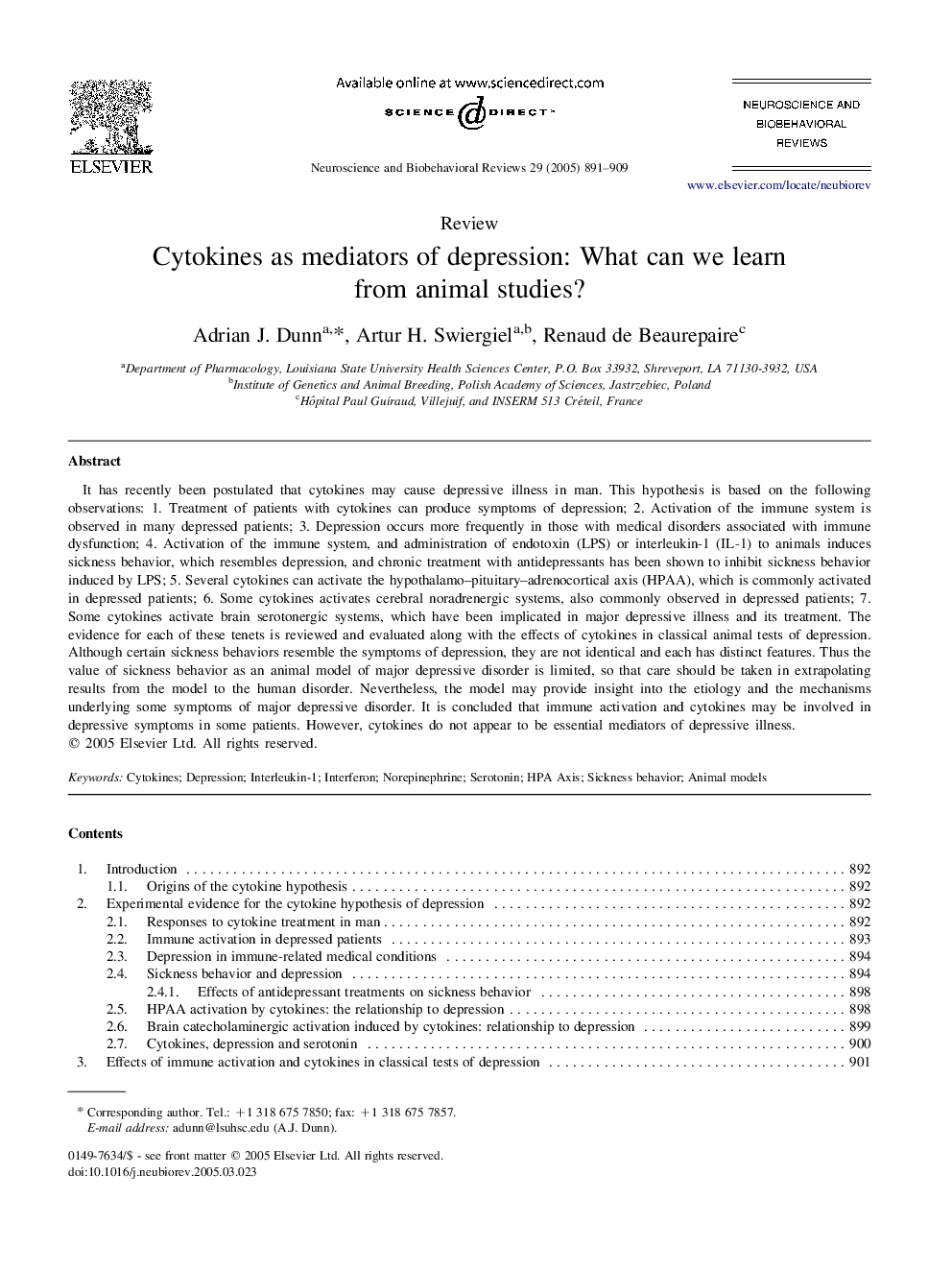| Article ID | Journal | Published Year | Pages | File Type |
|---|---|---|---|---|
| 9723601 | Neuroscience & Biobehavioral Reviews | 2005 | 19 Pages |
Abstract
It has recently been postulated that cytokines may cause depressive illness in man. This hypothesis is based on the following observations: 1. Treatment of patients with cytokines can produce symptoms of depression; 2. Activation of the immune system is observed in many depressed patients; 3. Depression occurs more frequently in those with medical disorders associated with immune dysfunction; 4. Activation of the immune system, and administration of endotoxin (LPS) or interleukin-1 (IL-1) to animals induces sickness behavior, which resembles depression, and chronic treatment with antidepressants has been shown to inhibit sickness behavior induced by LPS; 5. Several cytokines can activate the hypothalamo-pituitary-adrenocortical axis (HPAA), which is commonly activated in depressed patients; 6. Some cytokines activates cerebral noradrenergic systems, also commonly observed in depressed patients; 7. Some cytokines activate brain serotonergic systems, which have been implicated in major depressive illness and its treatment. The evidence for each of these tenets is reviewed and evaluated along with the effects of cytokines in classical animal tests of depression. Although certain sickness behaviors resemble the symptoms of depression, they are not identical and each has distinct features. Thus the value of sickness behavior as an animal model of major depressive disorder is limited, so that care should be taken in extrapolating results from the model to the human disorder. Nevertheless, the model may provide insight into the etiology and the mechanisms underlying some symptoms of major depressive disorder. It is concluded that immune activation and cytokines may be involved in depressive symptoms in some patients. However, cytokines do not appear to be essential mediators of depressive illness.
Keywords
Related Topics
Life Sciences
Neuroscience
Behavioral Neuroscience
Authors
Adrian J. Dunn, Artur H. Swiergiel, Renaud de Beaurepaire,
